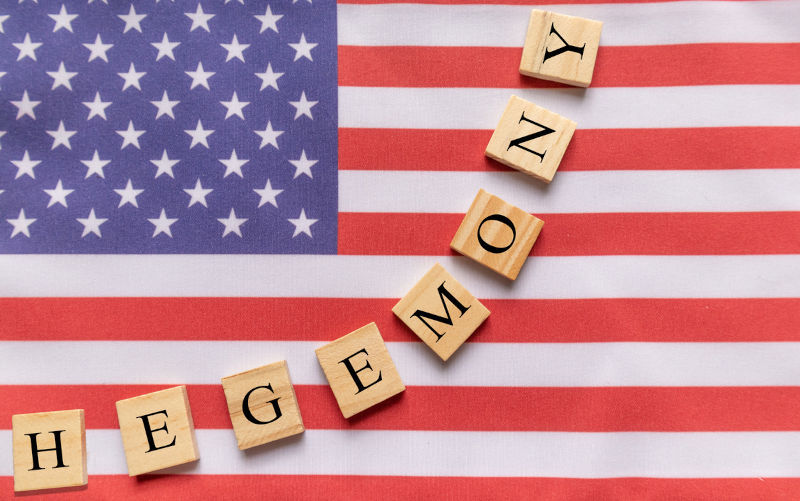The defining feature of our present strategic environment is not a competition between the US and China. It is the breakdown of the singular hegemonic command of the United States, under its own weight.
This is a response to Peter Varghese’s essay published in this blog, which begins:
“We are now in a world where the competition between the US and China is the defining feature of our strategic environment.”
This statement is the defining flaw in Australian strategic perspective and debate.
Mr Varghese had a distinctive career, peaking in the Howard years, in the Australian public service and diplomacy.
On departure from the public service in 2016, he gave a valedictory address to the Institute of Public Administration on the nature of public service which I commend to anyone contemplating life as a minister, ministerial staffer, or public servant. The antithesis of Morrison and his directive to departmental secretaries that their job was to do what they were told to do, not to advise. I can agree with much of what Varghese said in 2016.
In 1974, as the then youngest Second Division (now SES) officer, I made a private submission to the Coombes Royal Commission into Australian Government Administration. It may astonish in present circumstances that it was necessary in 1974 to advocate for strategic planning, program budgeting and other basic elements of public service as it is now. I differ on one matter of language though. Varghese maintained the ancient and rather smug assertion that the public service must be apolitical. He might shift to my terms of saying in 1974 that the public service must be constantly politically aware, that every action of government affects the people and thus every recommendation to government is political. But the public service must be non-partisan. On that we agree.
This is important context to criticism of Varghese’s current essay.
I have never encountered a foreign policy issue, a foreign policy perspective, that does not have political content. Varghese’s approach to international strategy and the alliance with the United States seems to have been to think of Australia as a good servant. On the contrary, in speeches I drafted for Lionel Bowen when head of his office as deputy labor leader in 1978-79, we underscored the importance of an ally being a source of good critical advice otherwise worthless.
The defining feature of our present strategic environment is not a competition between hegemons, as Varghese argues. It is instead the breakdown of the singular hegemonic command of the United States, under its own weight.
This is due to disorder in its domestic government, including unearthing of atrocities and the rising countervailing forces for fascism; the horrendous warping of US society and its view of the world by the monetisation of its economy, where share value pursues great entities that buy and sell each other and no longer make things (or understand how they are invented, made, bought and sold), and a defence budget approaching a trillion dollars, which demands more bases around the planet and tends to make more enemies than it overthrows.
In the history of the modern state, from the Congress of Vienna in 1815, there has always been a sense of balance of power between states, beginning with removal of the hegemon Napoleon.
Within the post-Metternich world of national states, the American hegemony has been an anomaly. Within the emancipation and independence of people across the planet since World War II this hegemony has been a hazard of life.
At the end of the 1980s the Soviet Union collapsed under its own weight. In the time since then the United States has, as a strategic novelty, at least since Pax Mongolica, sought unipolar global hegemony without a matching opponent, though it does currently base its policies on Russia as opponent and China as a challenge, and is working hard to make a China war a reality, this being the most valuable essay on the coming Sinophobic Calamity.
In this context, Varghese, despite his university medal in history, displays an extraordinary lack of knowledge or understanding of China. A trait he shares with his champion, John Howard. Varghese suggests that we must deny China a clear run at recreating its ‘Middle Kingdom’.
I note here the continuing reality that the Chinese name for China now and for millennia is ‘Middle Kingdom’, Zhongguo,.. here is a definition from Beijing. Zhong meaning middle and guo meaning country; the simplified Chinese character a border containing a king, the traditional Chinese character being a border containing rice and fish and other things entirely understood as needed in their country.
To put this in perspective, the place of Europe and China in the world in the Middle Ages is instructively compared by the Genoese historian of banking Giuseppe Felloni where he writes:
Between the 11th and 16th centuries Europe’s position with regards to other civilisations radically changed. … in the 10th century… Europe was still socially, culturally and economically backward, overtaken by the refined… Byzantine Empire, the flourishing world of Islam, … and the magnificent Song Dynasty in China.
I offer that quote to calm us down, to draw us away from the notional magnificence of America. We need to have more care of the continuing and intensifying colonial nature of the global rule, not least in the western hemisphere with a doctrine of dominance grown from a State of the Union speech by President Monroe in 1823, which is still crushing a number of countries in the western hemisphere which do not accept or do not wish to accept the dominance of their lives by American colonial capitalism.
We are creatures now of the closing of the world, a world struggling to save just 30% of its natural order. Remember John Calhoun. The upheavals in the world have to be seen in the context of crowding and the bruising of abused colonial peoples.
I have written recently about how the Americans are fracturing their relations with Europe and have ruptured their dominance of Arabia, with consequent growth of multipolar preferences and forms of interaction between states. I am astonished that Varghese is unaware of the Five Principles of Peaceful Coexistence sustained by China and based on principles enunciated at the Bandung [Indonesia] Conference in 1955, the basis of the non-aligned movement and AfroAsian Movement.
These were no doubt far from the understanding of international affairs by the Howard Government… and also it would seem the understanding of world affairs the Australia’s present Deputy Prime Minister and Minister for Defence Richard Marles. A Minister in power due primarily to the balance of Albanese’s NSW left faction of the ALP with Marles’ Victorian ALP right faction rather than any talent for defence or foreign policy.
No long historical view, no understanding of current affairs, justifies a notion of contestation between the US and China for global hegemony. That is not what is observable, outside narrow conservative American (and Australian) thinking and their war-thirst.
I recognise Varghese’s desire to raise a handkerchief sail to inch us just a bit away from the Americans, but his love of the alliance is undying. This is an alliance we got as a condition of signing the postwar peace treaty with Japan. It is an alliance irrelevant to Australian security except now in our endangerment by the flood of US defence presence into northern Australia, entirely on their terms.
It is an alliance that in our fealty led us into wars in Vietnam, Afghanistan and (continuing wars) in the Middle East. Wars that killed and maimed Australians and people whose countries we invaded…and did nothing for Australian security. We have a Royal Commission into the conduct of junior members of Australian forces in Afghanistan, but no inquiry into the foolish leaders, served as a principal by Varghese, who made asinine decisions to chase the American flag into those wars.
It is a long way back for Varghese to retreat to find the present. This week’s essay does not do the job.
Our security depends not on expensive things we may get from the US defence industries, or the interchangeability [determined by Marles] of Australian and US force units, but in diverting money away from such toys to make us a country worth defending.
Dennis Argall’s degrees were in anthropology and defence studies. his governmental work in foreign, defence and domestic departments and for the Australian parliament. His overseas postings included Beijing as ambassador, and Washington. He regrets the extent of his personal experience with disability but it has perhaps sharpened his desire that the future be a better country.

